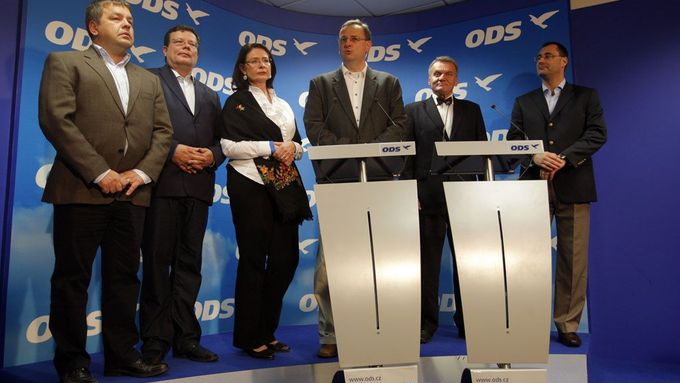Prague - The late-May 2010 legislative election in the Czech Republic gave birth to a strong center-right coalition which, enjoying the more than comfortable majority of 118 of the 200-seat Lower Chamber, immediately started to prepare ambitious economic reforms that fit into the hotly debated European turn to fiscal austerity.
Read more: Czech government approves austere budget and tax hikes
Now, less than five months since the formation of the government, the municipal and Senate elections held on Friday 15 and Saturday 16 October delivered a sharp blow to the coalition, showing that the public support for the reforms is much weaker than thought.
Read more: Fraud scandal overshadows Czech local elections
The Social Democrats (CSSD), who suffered a historical defeat in the May legislative election, are back in play after surprisingly winning in several important municipalities. The electoral campaign criticizing the government economic reforms as "asocial" bore its fruit, and the largest opposition party is the main winner of the municipal polls. It gained control in 14 of the Czech Republic´s largest cities.
Read more: Czech Socialist leader resigns after winning election
On the contrary, the right-wing Civic Democratic Party (ODS), the largest member of the government , is the elections´ biggest loser. In some cities, it lost as much as 30 percent of votes in comparison with the last local polls in 2006. The ODS lost many important cities to the CSSD, managing to remain in power in only five larger cities.
Capital defeat
Most importantly though, the ODS lost its control over Prague, the economic and political centre of the country, to its coalition partner, the conservative TOP 09.
Read more: Aiming high: Ex-central banker runs for Prague mayor
In addition to Prague, the TOP 09 won also in Zlín and Karlovy Vary.
On the other hand, the centrist and somehow populist Public Affairs, the third member of the government whose success in May was the biggest surprise of the legislative election, suffered a very disappointing defeat in Prague, with the party´s results in other municipalities not being much more exciting.
Senate elections
In addition to electing the representatives of more than 6,000 Czech municipalities, voters on Friday and Saturday also voted for one third ( 27 seats) out of the Czech Republic´s 81 Senators.
The Senate elections were characterized by the dominance of the two largest parties of the Czech Republic - the ODS and CSSD. Out of the 55 candidates that made it to the second round (nobody managed to win in the first round), 22 are Social Democrats, 19 are Civic Democrats, and only 14 of them are from smaller parties (five from the TOP 09, five independent candidates, 2 Christian Democrats and one from the Public Affairs).
This can be seen as a reversal of the May 2010 legislative election marked by a relative decline of the electoral support to the ODS and CSSD and the surprising success of smaller parties, namely the Public Affairs and TOP 09.
The CSSD thus has a real chance of becoming an important political power in the Senate which would enable it to outweigh the government´s dominance in the Lower Chamber and to significantly hamper the introduction of its reforms.
Interestingly, one of the Social Democratic candidates who made it to the second round of the elections is Vladimír Špidla, who was the EU´s Commissioner for Employment and Social Affairs in 2004-2010.
On the contrary, the ODS is in a quite difficult situation - 17 of its 19 candidates will have to win in the second round in order for the party to maintain its current power in the Senate.
The second round of the Senate elections will take place in one week.
